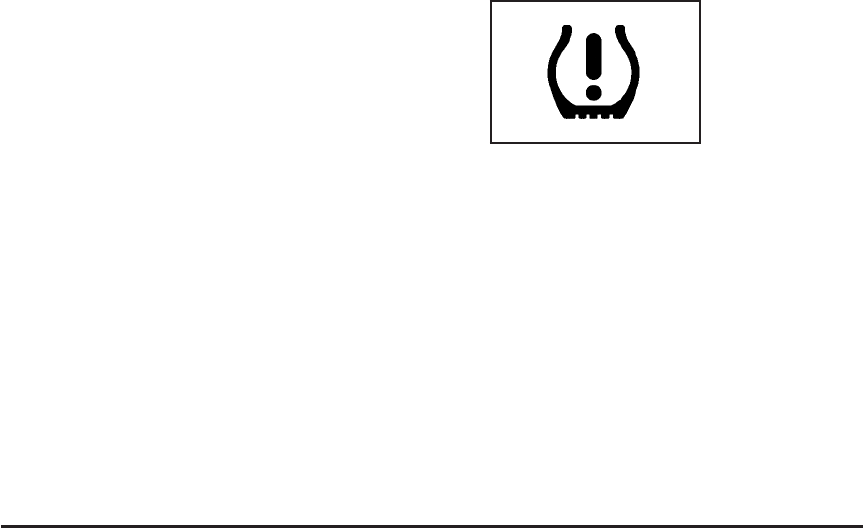
Tire Pressure Monitor System
The Tire Pressure Monitor System (TPMS) uses radio
and sensor technology to check tire pressure levels.
If your vehicle has this feature, sensors are mounted on
the tire and wheel assembly. The TPMS sensors
transmit tire pressure readings to a receiver located in
the vehicle once every 60 seconds while the vehicle
is being driven, and once every 60 minutes if the vehicle
is stationary for more than 15 minutes.
If your vehicle has the base audio system, the Driver
Information Center (DIC) displays TPMS warnings and
messages on the radio’s display screen. See System
Controls on page 3-53 and DIC Warnings and Messages
on page 3-61 for additional information and details
about the DIC operation and displays. If your vehicle
has the Navigation system, TPMS warnings and
messages are displayed on the message center
screen, located inside the tachometer. See Message
Center (CTS-V) on page 3-47 for information about the
message center operation and displays.
If a low tire pressure condition is detected, the TPMS
will display the Check Tire Pressure message on
the DIC or message center and, at the same time,
illuminate the low tire pressure warning symbol on the
instrument panel cluster.
Each tire, including the spare (if provided), should be
checked monthly when cold and inflated to the inflation
pressure recommended by the vehicle manufacturer
on the vehicle placard or tire inflation pressure label.
When the low tire pressure
telltale is illuminated, one
or more of your tires is
significantly under-inflated.
You should stop and check your tires as soon as
possible, and inflate them to the proper pressure.
Driving on a significantly under-inflated tire causes the
tire to overheat and can lead to tire failure.
Under-inflation also reduces fuel efficiency and tire
tread life, and may affect the vehicle’s handling
and stopping ability.
The Tire and Loading Information label shows the size
of your vehicle’s original tires and their recommended
cold inflation pressures. See Loading Your Vehicle
on page 4-32, for the location of the tire and loading
information label. Also see Inflation - Tire Pressure
on page 5-66.
5-69


















